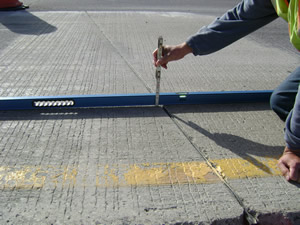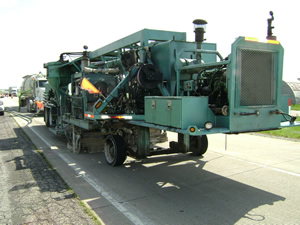Concrete pavement rehab
Full depth repair
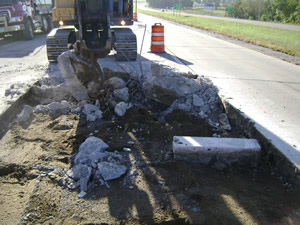
Removing a damaged panel for new replacement.
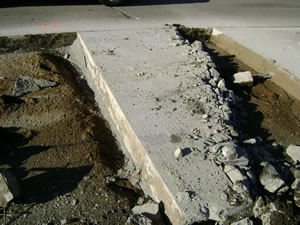
Removal of a full depth panel for repair.
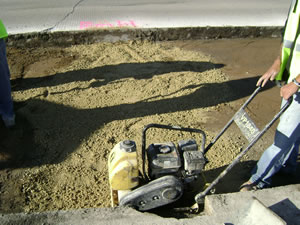
Preparing the base for new concrete.
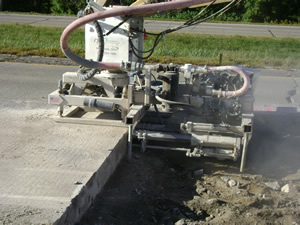
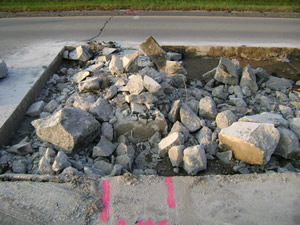
Failed concrete that will need to be removed
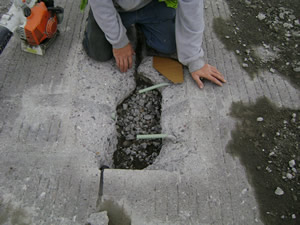
Partial repairs showing the top half chipped or ground out. This also shows a spot where the deterioration of the old concrete goes to the base. Rebar is drilled and epoxied into the old concrete to help keep the new concrete in place.
Dowel bar retrofit
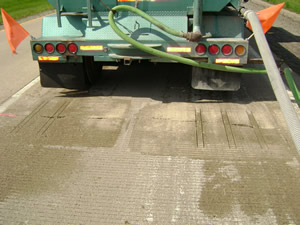
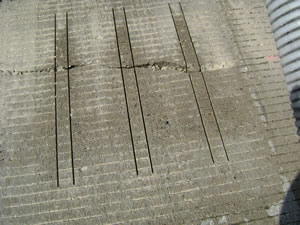
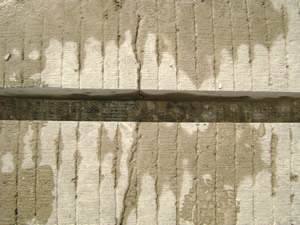
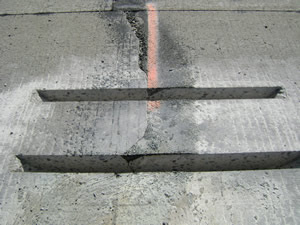
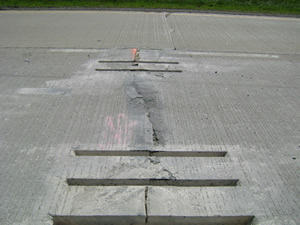
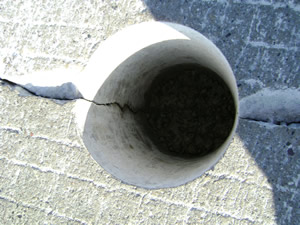 This core hole shows a mid-panel crack all the way to the base. It indicate how much deteriation there is in the concrete. This will get a Dowel Bar Retrofit to keep the two panels from shifting and moving vertically.
This core hole shows a mid-panel crack all the way to the base. It indicate how much deteriation there is in the concrete. This will get a Dowel Bar Retrofit to keep the two panels from shifting and moving vertically.Completed full depth panel and dowel bar retrofit
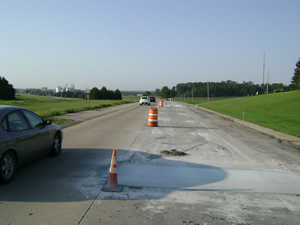
Grinding for a smoother ride
